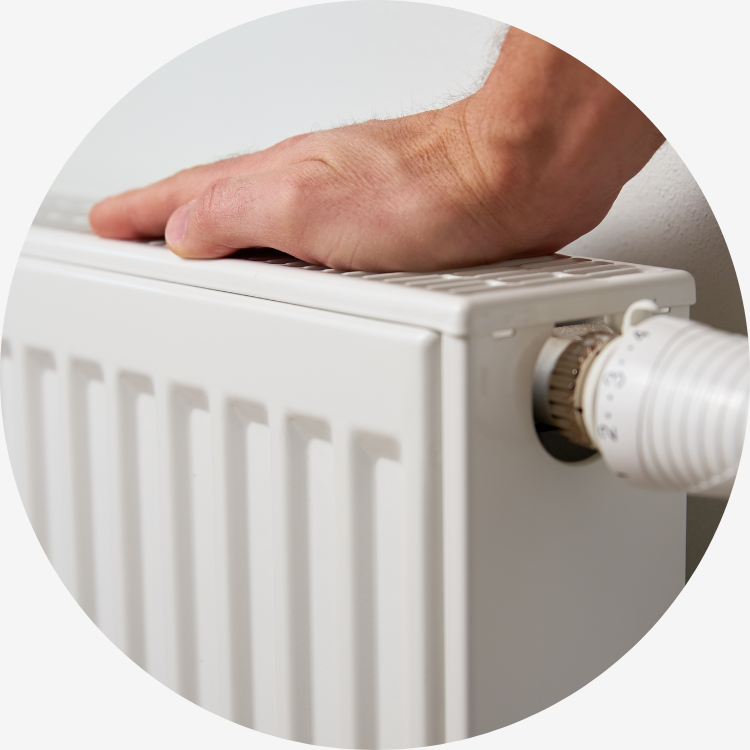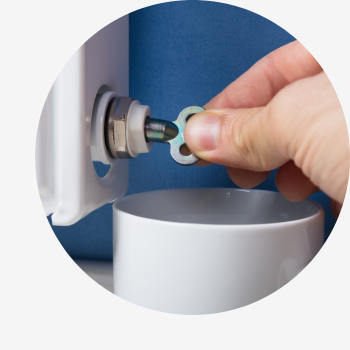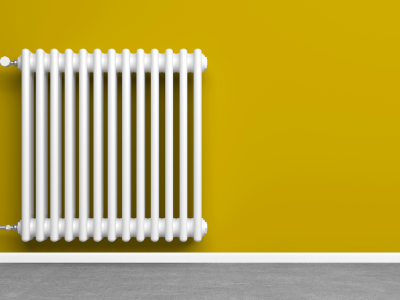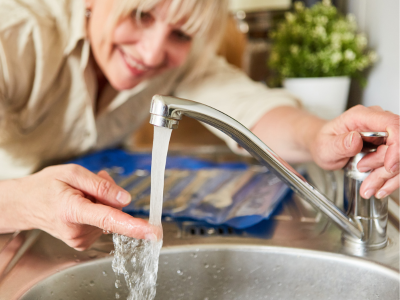 Free delivery on orders over £75 ex VAT
Free delivery on orders over £75 ex VAT Free click & collect from branches nationwide
Free click & collect from branches nationwideBleeding Radiators is an important task…
It's something that we try and put off for as long as possible, without realising the potential damage it could be causing our heating systems.
As homeowners, it may seem a daunting task, but bleeding our radiators once in a while helps ensure that our homes get evenly heated - particularly during the colder months when we rely on heating more to keep us warm and comfortable.
Our heating experts have created an informative guide on how you can bleed your radiators at home - plus, we discuss in depth on why bleeding radiators is essential, and the tools needed to bleed radiators.
When Should you Bleed a Radiator?
There are many important factors as to why you should bleed your radiators.
Firstly, air pockets can accumulate over time and become trapped in your heating system, preventing hot water from circulating effectively. This will mean your radiators won't heat up properly, and your home may feel cold as you wont feel the benefit.
You might be thinking, what causes air pockets in your central heating system? Well, air pockets can be a result of a few things such as a build-up of hydrogen, sludge or could even be down to a rusty pipe in the heating system.
When you have your central heating switched on, you may also notice cold patches at either the top or bottom of your radiators. This is a common indication that your radiators will need bleeding as it can have a significant impact on your heating efficiency, as a result costing you more on your heating bills.
Simply put, it's good practice for homeowners or business owners who are mindful of their heating expenses to bleed their radiators occasionally.

What Tools do I Need to Bleed a Radiator?
Thankfully when it comes to bleeding radiators, you won't need any over-complicated tools.
All you will need is a radiator bleed key - like the OX Pro Diamond Tipped Hex Key - as well as an old cloth or jug to catch any escaping water that will come from out of your radiators.
Some modern radiators can be bled by using a radiator key or by using a flathead screwdriver.
While bleeding radiators as a whole may seem like an easy task, it is important to keep in mind that bleeding convector radiators might prove more tricky.
This is because convector radiators are pretty old, making them more challenging to bleed, but it's not entirely impossible.
By making good use out of an allen key, a pair of pliers or a small spanner are great effective ways to bleed any convector radiator you may have around your property.

How to Bleed a Radiator Step-by-Step
Bleeding a radiator is a relatively simple, straightforward process. Follow our step-by-step guide to learn how:
- First, you will need to switch on your central heating to allow the water to circulate around your property and through your radiators.
- Once you have allowed enough time for the water to circulate - get your tools ready in hand and line up the radiator key with the grommet located at either the top or bottom corner of the radiator.
- Turn the key anti-clockwise. If air is in your radiator, you will hear a hissing sound. This is all the air trapped inside now escaping from out of your radiator.
- Have a cloth or jug nearby because water will start to trickle out once all the air has escaped from your radiator.
- Now that the air has escaped, you can now turn the grommet nice and tight clockwise on your radiator so it closes it back up.
Now that you know how to bleed a radiator, you can repeat the process on all of your other radiators if you do not feel they are not giving their full heating potential.

Frequently Asked Questions for Bleeding Radiators
Now let's round things off by answering a few of the nation's common questions towards bleeding radiators.
Will Bleeding a Radiator Affect Boiler Pressure?
The simple answer is yes, bleeding radiators will lower your boiler pressure. This is because the air released from your radiators will cause the pressure to equalise - so it's a good idea to check if your central heating system as your boiler pressure should be between 1.0 to 1.5 bars.
Will Bleeding Radiators Stop a Leak?
If you have a leak in your central heating system - sadly by, bleeding your radiators won't stop the issue. In this instance, you should switch off your heating system and contact a professional plumber to resolve the issue promptly - avoiding further damage to your home and heating system.
Can you Bleed your Radiator Too Much?
While bleeding your radiator can help improve its efficiency, it is possible to bleed it too much. Keeping the radiator valve open for too long will cause your boiler pressure to drop dramatically, which can cause your boiler to go into safe mode. This means your boiler will not provide any heat into your system until your boiler has been re-pressurized.
You can read more about how you can maintain your boiler pressure to avoid any issues in the future.
Remember to check your radiators regularly and bleed them if you notice that they take much longer to heat your home.
It is essential to keep your heating system functioning at its best, so if you require further advice, then get in touch with our Heating Experts or contact your local City Plumbing branch.
Author: Alexis Webster
Other articles

Are Your Radiators Winter Ready?
28 Sep 2023 ・ 6 mins

How to Keep Your Hot Water System Free From Contaminants: 5 Key Steps
15 Sep 2023 ・ 5 mins

Should You Lower Your Boiler Temperature?
18 Oct 2022 ・ 6 mins

A homeowners’ guide to central heating systems
22 Mar 2022 ・ 9 mins

